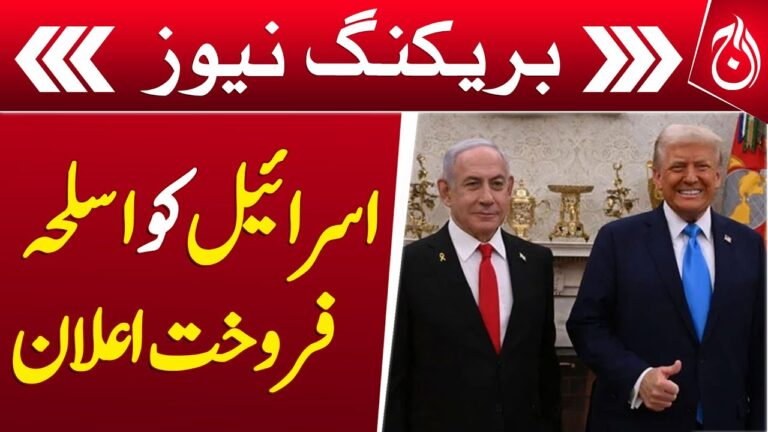U.S. Announces Arms Sales to Israel: A Strategic Alliance in Focus
In a significant development reaffirming the long-standing partnership between the United States and Israel, the U.S. government recently announced a new arms sales agreement aimed at bolstering Israel’s defense capabilities. This decision has sparked discussions in geopolitical circles and raised eyebrows among international observers concerned about regional stability.

Strengthening Defense Ties
The arms package, valued at approximately $735 million, is part of a broader strategy to equip Israel with advanced military technology that enables a robust defense framework amid ongoing regional tensions. This deal comes on the heels of escalating conflicts in the Middle East, emphasizing the necessity for Israel to maintain a qualitative military edge over its adversaries.
The U.S. has historically been Israel’s largest arms supplier, providing a staggering $3.8 billion in military aid annually as part of a 10-year agreement signed in 2016. This support is critical for Israel, which faces numerous security challenges from neighboring countries such as Syria and Iran, as well as non-state actors like Hezbollah.

Key Components of the Arms Package
The recent arms sale includes precision-guided munitions, anti-tank missiles, and advanced radar systems designed to enhance Israel’s defensive posture. According to a report from the Congressional Research Service, around 75% of U.S. military aid to Israel is used to acquire American-made weapons and equipment, which not only strengthens Israel’s military but also sustains the American defense industry.
Notably, the new shipment aims to enhance Israel’s capabilities in countering drone warfare, a tactic widely employed by various militant groups in the region. In 2020 alone, the Use of drones in asymmetric warfare by groups like Hamas and Hezbollah has surged, prompting Israel to focus on advanced aerial defense mechanisms.
Political Reactions and Implications
The announcement has not been without controversy. Critics, including some U.S. lawmakers and human rights organizations, argue that such sales enable ongoing military operations that could escalate violence. Activists have expressed concerns over the humanitarian impact of enhanced military capabilities on Palestinian civilians, especially given the fragile situation in Gaza.
Despite the dissent, supporters of the arms deal underscore the importance of Israel as a critical ally in the Middle East. Israel acts as a strategic bulwark against Iranian influence in the region, particularly as Tehran continues to support groups that threaten Israeli security.

Statistical Insights
To contextualize the importance of this arms deal, consider the following statistics:
- The U.S. accounts for approximately 20% of all arms exports globally, with Israel being the largest recipient over the past decade.
- Israel has a defense budget of around $20 billion, with a significant portion financed by U.S. military aid, largely used for the acquisition of advanced technology and systems.
- According to the Stockholm International Peace Research Institute (SIPRI), Israeli defense exports reached $7.2 billion in 2020, illustrating its status as a major player in the global arms market.
Conclusion
The recent U.S. announcement regarding arms sales to Israel remains a complex and multifaceted issue intertwined with the geopolitical realities of the Middle East. As regional tensions persist and adversarial forces mobilize, Israel’s defense capabilities become increasingly paramount.
While the arms deal is a testament to the enduring U.S.-Israel alliance, it also underscores the need for a comprehensive approach to peace in the region. Ultimately, striking a balance between military assistance and diplomatic efforts will be key to fostering stability and reducing tensions in this volatile part of the world.

As this situation continues to evolve, it is crucial for stakeholders both in the U.S. and abroad to monitor the implications of these military agreements on the broader peace process and the lives of those affected in the region.


